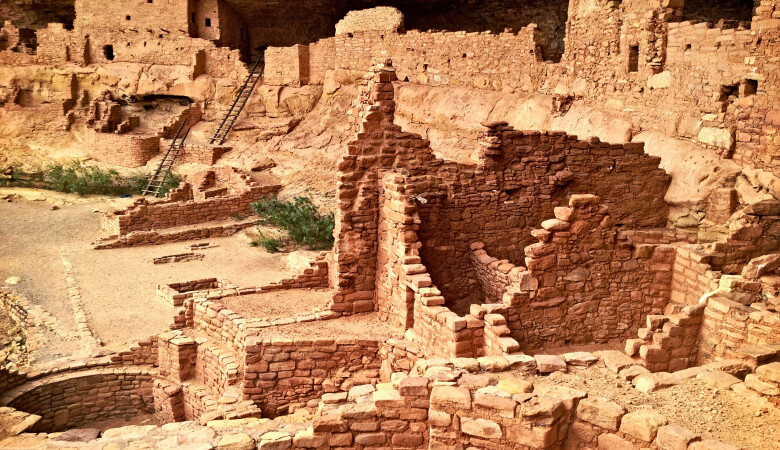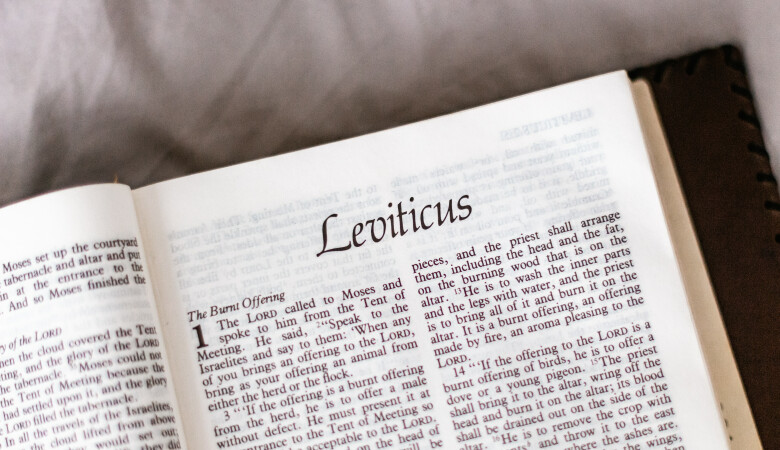Christ Greater Than the Angels, Part 1 (Hebrews Sermon 3 of 74)
September 19, 2010 | Andy Davis
Hebrews 1:4-7
Exaltation of Christ, Angels
Introduction: The Glory and Power of the Created Angels
I wonder how our corporate worship would be transformed if God gave us the eyes of faith to see what's going on in the invisible spiritual realms in this room right now? If you could see angels and demons battling it out on more or less equal terms, the kind of warfare swirling around our heads, perhaps it would leave you powerless, breathless on the ground in terror and amazement, and wonder. The Prophet Daniel had a vision of a heavenly warrior that left him on the ground literally unable to breathe. He was standing on the banks of the Tigris River when suddenly an awesome being came and stood before him. This messenger was a radiant being dressed in linen with a golden belt around his waist. Daniel 10:6 describes him, "His body was like chrysolite, his face like lightning, his eyes like flaming torches, his arms and legs like the gleam of burnished bronze, and his voice like the sound of a multitude."
The men who were with Daniel couldn't see this messenger but they fled in terror from an invisible presence. Daniel himself fell to the ground as if in some kind of a mysterious deep sleep, he was breathless, he was trembling violently. And though the messenger commanded him to stand, he was physically unable to do so for long, he literally had no strength whatsoever in his legs. He said, "I am overcome with anguish because of the vision, my Lord, and I am helpless. How can I your servant talk with you, my Lord? My strength is gone and I can hardly breathe."
Now, this awesome being was an angel. If you saw such a being, I think you would be tempted, like Daniel, to fall on the ground and call him my Lord, which he does twice, or like the apostle John was on the Isle of Patmos, twice falling down to worship the angel that brought him the revelation. And twice the angel had to tell him the same thing, "Do not do it. I'm a fellow servant with you… Worship God." Twice, Revelation 19 and Revelation 22.
Angels are fellow servants with us but they are glorious, holy, exalted, heavenly beings. And were we not better instructed and could we see them with our own eyes, we would be tempted to fall on the ground and worship them. But the holy angels would all instruct us in the same way, "Do not do it, worship God," worship Christ for Jesus is immeasurably greater than any angel. Now, in Hebrews 1, the author's point is to teach us that Christ is immeasurably, infinitely greater than all angels.
I. Why Does This Passage Exist?
So why does this passage exist? When I think why would the author begin his epistle this way comparing Jesus to angels and saying that Jesus is greater than angels? Well, remember the overall book of Hebrews was written to Jewish people who had made some kind of profession of faith in Christ, but who are under relentless pressure from their Jewish friends and family and neighbors and rabbis to give up their profession of faith in Christ and go back to old covenant religion. They are in danger of going back to Judaism, back to the synagogue, giving up Jesus. And so the author begins with a glorious display of Christ as God, as Creator, and sustainer of the universe. And he's doing this so that they will worship Jesus and so that they will not go back to the old covenant, forsaking the new covenant. So his strategy is to declare right from the beginning the greatness of Christ so that they will not turn their backs on Him and forsake Him. And so Jesus is the superior mediator. The superior mediator, Christ, who brings a superior covenant, the new covenant, resulting in a superior life. Christian life of complete forgiveness, purification in the sight of God and power to serve God. That's what this epistle is about.
Now, last week we saw in Hebrews 1:1-3 how he starts so powerfully with the radiance and the greatness of Christ as God and in His office as final Prophet, Priest and King to the Jewish people and to the world. "In the past, God spoke to our forefathers through the prophets at many times and in various ways, but in these last days He has spoken to us by His son whom He appointed heir of all things and through whom He made the universe. The Son is the radiance of God's glory, and the exact representation of His being, sustaining all things by His powerful word. And after He had provided purification for sins, He sat down at the right hand of the majesty in heaven." If I'm not careful, I'm just going to preach last week's sermon all over again, which wouldn't necessarily be a bad thing but there's more to learn, isn't there? Because the author goes on from there, he links these three verses to this statement. Verse four, "So He became as much superior to the angels as the name He has inherited is superior to theirs." So, he's linking what he just told us about Jesus to the issue of angels.
Three Goals of the Author
And you may wonder why, why specifically does the author want to show the superiority of Christ to the angels? I believe it's because the angels brought the old covenant to the Jews. Now, if an angel, a holy angel, came from heaven and gave you a message, how seriously would you take that message? If you learn anything from John the Baptist's father Zechariah's example, you better believe it and do what it says or he might do something to you as Gabriel struck him dumb until John was finally born. But you would take that message very seriously, wouldn't you? If an angel came down from heaven and gave you a message. How much more then if the Son of God does it? That God Himself in the person of His Son comes and gives you not a message, but a whole new covenant by which we are welcomed in the presence of God. How seriously should we take that?
And so the author's purpose here is to exalt Christ anyway, so that we'll worship Him. So we'll give ourselves fully because we're creative for that. But specifically to compare Christ to angels and show that Christ is infinitely above angels so that we'll not worship angels, but that so we will esteem the new covenant that was given to us by Christ as superior to that that the angels gave, the old covenant.
II. Who Are Angels, and What Do they Do?
And so who are these angels, what do they do? In verse 4, Christ is compared, a direct comparison to angels. "Christ is as much superior to the angels, as the name He has inherited is superior to theirs." So we're going to talk about angels today because that's what the author is doing. He's comparing Jesus to angels. Again, verse 5, "For to which of the angels did God ever say, 'You are my son?'" Verse 6, "Let all God's angels worship Him." The angels are commanded to worship Christ.
In verse 7, the angels are established as servants, mere servants. Also again in verse 14, they're called servants. Verses 7 and 8 shows a direct comparison between Christ and these servants. Verse 7 says, "'He makes His angels winds, His servants flames of fire,' but about the Son, He says, 'Your throne, oh God, will last forever and ever.'" Jesus enthroned as God over all things, angels merely servants. In verse 9 it says that God has set Jesus above His companions. So in the context that's at least talking about angels, He is above the angels, set above them. And then in verses 13 and 14, again, a direct comparison with the angels, "To which of the angels did God ever say, 'Sit at my right hand until I make your enemies a footstool for your feet'?" He's comparing them to angels and verse 14, "Are not all angels ministering spirits sent to serve those who will inherit salvation?" So right straight through and frankly on into chapter two, he's comparing Jesus to the angels.
So who are angels? Well, angels are created beings, so they're creatures, they're created beings. They are spiritual in nature, which we'll discuss this morning, without flesh and bones. They are able, however, to take visible form, looking like human beings, so skillfully that you can actually entertain angels without knowing it. So the author of the Hebrews at the end of chapter 13 says, "Show hospitality to strangers," never know it might be an angel. So they are able to do that, they are, they often appear supernaturally with radiant glory shining around them. It's all in what they want to do. If they want to put you on the ground, they'll put you on the ground. If they want to appear to you, and you don't even know it's them, they can do that too. Whatever God wills.
They're highly intelligent, with powerful emotions. They are inquisitive. They're frequently asking what is God up to, what is He doing? So they're not omniscient, they don't know everything, but they're very well informed. They know what's going on, as much as God's revealed to them. They do not marry, they are unable to procreate. They do not die, they are immortal. There is a fixed number of them, and that number is huge, at least 100 million. A large number, a large percentage of angels rebelled with Satan, and were thrown from heaven. Revelation 12 tells that story, thrown to the earth, and they became what we call demons, as we saw on the sermon on hell a number of weeks ago, in which Jesus said, "Depart from me, ye who are cursed into the eternal fire prepared for the devil and his angels." So the devil, who was himself an angel, led some angels astray. Those angels who were not led astray are called in 1 Timothy, elect angels. So they're chosen by God not to fall. So election extends not just to humans, but to angels.
They are highly organized. There are archangels, which means ruler angels, and there are lesser beings. And there are probably greater levels of angelic power and glory than that. They're clearly more powerful than human beings, for one angel moved the stone in front of Jesus' tomb. Rolled it back and sat on it, it's one of my favorite angel moments in the Bible. As the soldiers become like dead men, laying on the ground before him. He's not too troubled with them. I could say a lot of things right now like, "You want a piece of me? Come and get it," that kind of thing, but he could have handled if there were 1000 Roman soldiers, it would not have mattered. Powerful, and able to move with astonishing speed, frequently depicted as having wings, even six wings.
Alright, what do they do? Well, they're created especially to serve God and His people, they are both spectators and participants in redemptive history. They are observers in the book of Revelation. They note the events that are going on on earth and talk about it. They're dispatched by God to pour out wrath and rescue believers who do other key tasks. They were especially involved in the life of Christ, celebrating at the time of His birth, ministering to Him in the time of His humiliation, both in His fasting in the desert and then in Gethsemane, announcing Christ's resurrection to the women and to the apostles, especially active in the life of Christ.
Now, how are they especially relevant to the book of Hebrews? Well, I think I've already told you. Look at Hebrews 2:1-3, there it says, "We must pay more careful attention, therefore, to what we have heard," that's the gospel, the new covenant, "We must pay more careful attention, therefore, to what we have heard so that we do not drift away; for if the message spoken by angels was binding and every violation and disobedience received its just punishment, how should we escape if we ignore such a great salvation?" And so the author is implying, he doesn't directly say it, but implying the angels brought the old covenant.
Stephen says this same thing, and so does is Paul. Stephen in Acts 7 says, to the Jews who are opposing him, "You who have received the law that was put into effect through angels but have not obeyed it." So the law is the law of Moses that came through angels. And then Paul says in Galatians 3:19, "The law was put into effect through the angels by a mediator." So the angels brought it to the mediator, the mediator is Moses, then Moses gave it to the people. Jesus is going to be compared to Moses in chapter 3. By the way, Jesus is greater than Moses too. And so the author is saying the angels brought us the Old Covenant, how much more then should we pay careful attention and not ignore this great salvation? That's what he's saying.
So Jesus, the greater messenger, brings us a greater covenant. Now, Christ was sent by God to bring us this new covenant. The angels are not mentioned as bringing the old covenant, in the Old Testament you don't see it. There is one verse that could be translated that way, but really get all of this from the New Testament, that's the only way we know it. And we think that, possibly, the angels are more active in bringing Scripture than we think. For example, wasn't it the angels or an angel that brought John the book of Revelation? For it says in Revelation 1:1, "A revelation of Jesus Christ which God gave him to show His servants what must soon take place. He made it known by sending His angel to His servant John," who wrote it down for us. And so the angels were given this kind of role.
III. Christ Greater Because of His Name
Alright, so how then is Christ greater than the angels? Well, right away the author says in verse 4, He's greater because of His name. And so He became "as much superior to the angels as the name He has inherited is more excellent than theirs." In that famous Shakespearean play, Romeo and Juliet, remember how Juliet was frustrated by the fact that the man she wanted to marry had the name, Montague, and she was a Capulet. Remember the two families were feuding and they couldn't marry. They couldn't get together because of this name Montague. What's in a name? She says that a rose by any other name would smell as sweet, so why do I have to worry about his last name? Well, it's all very beautiful, but it's not very simple that way, is it? Names mean something. With the name comes a history, with the name comes a heritage. When we come to the theology and the person of God, God's name is everything. In the Hebrew mindset, the name represented the person, his attributes, his nature, his position, his achievements. Says in Proverbs 22:1, "A good name is more desirable than great riches; to be esteemed is better than silver or gold." So God then in redemptive history puts everything into making a name for Himself.
Daniel in 9:15 prays this, "Now, oh Lord, our God, who brought Your people out of Egypt, for the mighty hand and who made for Yourself a name that endures to this day." So God gained a reputation for Himself when He brought the Jews out of Egypt. And God links our salvation from our own sins to this. "Everyone who calls on the name of the Lord will be saved." And the word Lord there in Romans 10 refers to Jesus. And Jesus steps into the name of God and makes God's attributes and His intentions and His person come alive incarnate before us. We have seen His glory and then you see what Jesus did, how He lived a sinner's life, how He died an atoning death and how He was raised from the dead on the third day. And if you call on that name, though you are a wretched sinner, though you have sinned greatly, you'll be forgiven. If you trust in that name, if you call on the name of the Lord, you will be saved. And that's true all over the world. So God makes much of His name to save sinners like you and me.
Jesus Received the Name "Son"
So what name is it that he has received, that the angels didn't? Well, what does it say? "So He became as much superior to the angels as the name He has inherited is superior to theirs, for to which of the angels did God ever say, 'You are my son…'?" Well, there is the name. The name is Son of God, that's the name that Jesus has and none of the angels do. "You are my son, today I have begotten you," or today I have become Your Father or again, "I will be His Father and He will be my son." Christ named son of God then, perfectly sums up all of His transcendent greatness and He is as much exalted over the angels as the name that He has received is exalted over theirs. They are angels which just means messengers, Jesus is Son, He is Son of God, He's the heir. And so the author speaks of Christ inheriting a name. He inherited the name Son of God, something He inherited from His Heavenly Father and it is, Christ's name, is the greatest name in all history.
Philippians 2, Jesus was willing to turn His back on all that heavenly glory and became a human being. He became a servant and He humbled himself even to the point of dying on a cross. "Therefore, God exalted Him to the highest place and gave Him the name that is above every name. That at the name of Jesus, every knee should bow in heaven and on earth and under the earth, and every tongue confess that Jesus Christ is Lord to the glory of God the Father." Jesus' name is the greatest name there is. Son of God, infinitely above all created beings. So the author asks a rhetorical question; "For to which of the angels did God ever say, 'You are my son, today I have become your father?'" The answer is clearly none. None of the angels received such a statement from God. There are more than 100 million angels and not one of them received such a statement or were begotten as the only Son of God.
The implication in this is that there are some angels that are greater than others. There are some ranks or orders of angels that are higher than others. For to which of any of them did God say, even the highest angel was never called Son of God. Michael the archangel in Daniel 10:13 is called one of the chief princes. That implies there are more than one of these ruler angels. So he's one of the chief princes. So to which of even the highest order of angels did God ever say, "You are my son"? None. And He is, I believe the eternally begotten Son of God. Now here, the mystery of godliness is great. Christ has eternally existed. He is no created beings, against the Jehovah's Witnesses' false teaching, that Jesus is a created being. He is no created being, He has forever existed and He has forever been God. But there is some question as to whether He has been forever Son, God the Son.
People ask because it says, "Today I have begotten you," as though at a certain decisive moment, Jesus became Son. Now, I believe the mystery of godliness is great but that Jesus never changes. He is the same yesterday and today and forever. And our creed, the Nicene Creed, teaches that He is eternally begotten as God the Son. It says, "I believe in one God the Father, Almighty, Maker of heaven and earth and of all things visible and invisible. And in one Lord, Jesus Christ, the only begotten Son of God. Begotten of the Father before all worlds. God of god, Light of light, very God of very god, begotten not made. Being of one substance with the Father by whom all things were made." Sometimes the translation of the creed reads, "eternally begotten of the Father."
Now, the word "begotten" comes from the Greek, "monogenes," which means only generated or only begotten one. John 1:14 says, "And the word became flesh and made His dwelling among us. And we've seen His glory. Glory as of the only begotten from the Father, full of grace and truth." Now, the concept is that Jesus was eternally begotten of the Father. But some focus on a decisive moment and I think there is a decisive moment concerning this issue of His sonship. And I think it has to do with the declaration of Jesus as Son. God speaking it to the universe. God declaring it to us so that we will know who He is. "For to which of the angels did God ever say, 'You are my son…'?" There's a declaration here in redemptive history.
And when did that happen? I think first and foremost it happened at Jesus' incarnation. We know from biology to have a human baby, you have to have 46 chromosomes, 23 of them come from the father and 23 from the mother. Mary was a virgin. The Angel Gabriel came and announced to her that she would be with child and give birth to a son. "And Mary said to the angel, 'How can this be since I am a virgin?' And the angel answered and said to her, 'The Holy Spirit will come upon you and the power of the Most High will overshadow you. And for that reason, the holy child shall be called the Son of God.'" So at that moment, the supplying of the missing 23 chromosomes in a miraculous sort of way, meant that Jesus had God as His own father. And so I think that's the decisiveness of this statement, "Today I have begotten you." Meaning, today I have declared to the world that You are My Son.
Second quote emphasizes the same truth, "Or again, I will be His father and He will be My Son." This is quoting from the Davidic Covenant in 2 Samuel 7. When God promised to David that he would have a son, who would always forever reign on the throne. "I will be His Father and He will be My Son." The only way that Jesus could be both son of God and son of David, is by this incarnation, by the virgin conception inside Mary's body. Now, no angel ever had that honor, dear friends. It's utterly unique in history. Only Jesus received this blessing of being the only begotten son of God. Amazingly though, the Apostle Paul links it to Jesus' resurrection.
In Pisidian Antioch, he's there preaching in the synagogue and he says this in Acts 13, "We tell you the good news. What God promised our fathers, He has fulfilled for us their children by raising up Jesus. As it is written in the second Psalm, 'You are my son. Today I have begotten you.'" Now, isn't that fascinating? When Jesus was conceived inside the virgin Mary, "You are my Son. Today I have begotten you." And then when He again takes on a human body, the statement again made, "You are My Son. Today I have begotten You." And from this point and forever, He will be human, forever the begotten Son of God. Both of them linked to Jesus being a human being. But none of the angels ever had such an honor and the glory to be called the Son of God.
IV. Christ Greater Because He Is Worshiped
Secondly, Christ is greater because He is worshipped. Look at verse 6, "And again when God brings His firstborn into the world, He says, 'Let all God's angels worship Him.'" God the Father commands the angels. They're merely servants. They are glorious, yes. They are powerful but they are merely servants. They do what they're told. When God, the Father, commands them to do something, they must obey. Here, God the Father, commands all of His angels to worship His Son. What an incredible moment that is in redemptive history. The word here used is firstborn, "When God brings his firstborn... " Greek is "prototokos." It's also used in Colossians 1, "He is the image of the invisible God, the firstborn over all creation." And again in 1:18: "He is the head of the body, the church. He is the beginning and the firstborn from among the dead." So again, incarnation and resurrection both used with that word, firstborn. So then in everything, He might have the supremacy.
So, how did it work? Back in those days, in Bible days, there were patriarchal families. The father was the head of the whole family. But his firstborn stood as his heir and stood to receive all of the father's possessions and his position of leadership over the family. Jesus is the heir, and He is the first born over the whole family. And so, God, when He brings His first born into the world says, "Let all God's angels worship Him." Now, this is amazing because God is jealous over His worship, isn't He? He says in the Ten Commandments in Exodus 20:2 and following, "I am the Lord, your God, who brought you out of Egypt, out of the land of slavery. You shall have no other Gods besides me. You shall not make for yourself an idol in the form of anything in heaven or earth or under the earth or in the waters beneath. You shall not bow down to them or worship them for I, the Lord your God, am a jealous God." God will have us worship nothing but Himself. Again Isaiah 42:8, "I am the Lord. That is my name. I will not give My glory to another or My praise to idols." And again in Matthew 4, when the devil comes and tempts Jesus says, "I'll give you the whole world if you just bow down and worship me." Jesus says, "Away from me, Satan. For it is written: Worship the Lord your God and serve Him only."
But here, amazingly, God commands all of His angels to worship His Son. There is no jealousy in the Trinity, dear friends. The Father is happy to have you worship Jesus. So, why don't you go ahead and do it? Amen! Do it. Do it right now while I'm preaching about Jesus. Just in your heart, esteem Him greatly. Love Him more than you ever have before. Just worship Him and the Father will be honored. He's not jealous of this because Jesus is God. And so it is not a violation of that first commandment, to worship Him. Let all God's angels worship Him. He wants all of creation to celebrate His Son, spreads it widely. Let everyone worship Him. And that's evangelism, by the way, too. Let all human beings worship My Son. And so when you go out as evangelists, you go out in the name of worship, go out there and just compel them to worship. Tell them great things about Jesus and let them worship. And if they won't worship, you go ahead and worship anyway. That's what evangelism is.
Now, what is the timing of this? Well, it all has to do with how you translate the verse and where you put the word "again." The NIV puts it at the beginning, it says, "And again when He brings His first born into the world, He says let all God's angels worship Him." But the NASB puts it later in the sentence. Such as, "And when God, again, brings His first born into the world, He says let all God's angels worship Him." Does that make a difference? Well, yes it does. It makes a difference because in that case if the "again" were later in the sentence, it would be talking about the second coming of Christ. When God again brings His first born into the world, He's going to command the angels then, "Let all the angels worship Him." And so, they will.
The first time when Jesus came into the world, the angels were there and they were worshipping, right? There was an angel and the shepherds were watching their fields at night. And then an angel came and the glory of the Lord shone all around them and they were sore afraid. I love the KJV on that one. Just stick with, "They were sore afraid." That means really afraid. Glory shining and then the angel said the good news that Christ was born in the city of David. And then, "Suddenly a great company of the heavenly host appeared with the angel, praising God and saying, 'Glory to God in the highest and on earth peace to those on whom His favor rests.'" So, that's it. When the Lord brought His first born into the world, all of God's angels were there. But, technically, they weren't worshipping Jesus at that moment; they were worshipping God. I think they were worshipping Him. But could it be that it's referring to the second coming of Christ? When all of God's angels will be there, when the Son of Man comes in His glory and all the angels with Him, He will sit on His throne in heavenly glory. And all the angels will be there.
In Revelation chapter five, it takes up this story after Jesus takes the title deed of the earth in His hand and He sits on the throne with God the Father and rules over the earth. This is what it says in Revelation 5, "Then I looked and heard the voice of many angels, numbering thousands upon thousands and ten thousand times ten thousand. They encircled the throne and the living creatures and the elders and in a loud voice they sang, 'Worthy is the Lamb who was slain, to receive power and wealth and wisdom and strength and honor and glory and praise.'" Well, there's no doubt Who the angels are worshipping there, the Lamb who was slain. They are clearly worshipping Him. Either way, I think they're worshipping at the beginning. They just worship all the time. They've been worshipping Jesus. I'm just trying to get the verse right. So you won't even trouble about where the "again" happens. You were never worried about it. But I am troubled by it. Is it at the beginning or the end? Does it really matter? All God's angels are worshipping Jesus. And we ought to too. That's the author's clear implication.
V. Christ Greater Because of His Nature
Christ is also greater, because of His nature. Look at verse 7. "And speaking of the angels, He says, 'He makes His angels winds, His servants flames of fire.'" Angels are mere created beings. They're creatures. Creature means that which is created. And they are creatures. He makes His angels. They're crafted, they're shaped, they're created. He makes His angels. And speaks here of their nature and of their office, what are they like and what are they called to do. Jesus is greater in both senses. As their nature, they're created beings or creatures. Concerning their office, they are servants.
Tozer, speaking of the infinite gap between God and all creatures, said this. This is in The Knowledge of the Holy.
"Forever God stands apart, in light unapproachable. He is as high above an archangel as above a caterpillar, for the gulf that separates the archangel from the caterpillar is but finite, while the gulf between God and the archangel is infinite. The caterpillar and the archangel, though far removed from each other in the scale of created things, are nevertheless one in that they are alike created. They both belong in the category of that which-is-not-God and are separated from God by infinitude itself."
So Jesus is infinitely greater than the highest angel, because He's creator, and they're creature. It also speaks of God's ownership. He makes His angels. They are His, He made them, He can do what He wants with them, they belong to Him. God the Father, God the Son, and God the Holy Spirit, made each one of those 100 million angels. Each one of them. Crafted them specially. I think they are each one unique, just like each human being is unique.
And so God the Father, God the Son, and God the Spirit sustains each one of those holy angels. In Him, each one of them lives and moves and has its being. Each one. And why? Because the Son is the radiance of God's glory and the exact representation of His being, sustaining all things by His powerful word. Jesus upholds the angels and keeps them alive. Now, two angels have names in the Bible, Gabriel and Michael. Luke 1:19 "I am Gabriel, I stand in the presence of God," so he has a special job, and he knows what his task is. Michael in Daniel 12:1, is the great prince who protects the Jewish people and who fights for them. So they have roles and names. It would be, I think, unhelpful speculation to go beyond this, in the area of names and roles and all that. Though others have done so in spades, dear friends. You want to know about angels? Just go on the internet. And venture into the world of new age mysticism, and start finding out how many angels' names there are.
Catholic theology, medieval theology accepted the apocryphal book of Tobit, so you get a third name, Raphael, from an angel there. Cults like the Mormons add the angel Moroni, who gave Joseph Smith the Book of Mormon. And one terrible website I went to gave dozens of angel's names with astonishing extra statements about what this or that angel did. One angel, with a specific name which I shall not utter here, was believed to have created the tree of life. I thought God did that. Anyway, another angel with a specific name, which I will not utter here, is tasked, get this, with the responsibility of helping people to love themselves so they can love others better. And if you can learn the names of each of these angels, then you'll do better in your life. This website told us calling an angel's name is asking this angelic energy to make itself known to you. Sounds like old polytheism to me. A pantheon of deities male and female, that can kind of come and help you.
However, the fact that two angels are named, and that the title archangels, at least in there, does give us a sense of differentiation and specialization among the angels, all 100 million of them. But they are merely servants and Christ is the ruler. And speaking of the angels, verse 70, "He makes His angels winds, His servants flames of fire." Then in verse 14, "Are not all angels ministering servants, sent to serve those who inherit salvation."
The clear contrast is put together between Jesus and Christ as you look at verse 7 and 8. In speaking of the angels He says "'He makes His angels winds, His servants flames of fire,' but about the Son He says 'Your throne, oh God, will last forever and ever.'" Do you see the contrast? We'll talk about that verse next week, but they're servants, He's on a throne. He's ruling. In verse 14, the author makes a special point that angels are sent to serve us and to help us. To minister to those who are going to inherit salvation. So by bringing the Scripture to Moses at Sinai, or to John on the island of Patmos, they were serving the church. By protecting the people of God from satanic attack, as Michael did in Daniel 12, angels have served the church. By warring against Satan generally, defeating his demonic army, casting down all those demons from Heaven to the Earth, angels were serving the church. By bringing messages, revelations, dreams, answers to prayers, angels did for Daniel, Joseph, Mary, Peter, Philip and others, angels have served the church. By providing food and drink for the suffering like Elijah, who was just at the end of his rope, fleeing from Jezebel, lying wanting to die in the desert, God sent an angel to feed him and give him some water, angels have served the church. By enabling Peter the Apostle to escape prison when King Herod wanted to kill him, angels have served the church. And then by going and killing King Herod and striking him so he was eaten with worms and died, angels have served the church.
In the future when angels are dispatched as in the Book of Revelation, to pour out specific aspects of the wrath of God on the persecuting world, angels will be serving the church. When Christ comes in His glory and all the angels with Him, He will send out His angels in heavenly glory and they will gather the elect from one end of the heavens to the other, and angels will serve the church then. Boy, aren't you looking forward to that! That is the rapture, friends. And God will send you an angel to come and get you.
And when Christ the judge condemns the reprobates, the wicked, and dispatches them to hell and commands "Tie them hand and foot and throw them outside into the darkness," it will be angels that will weed out of Christ's kingdom everything that causes sin and all those who do evil, throw them in the fiery furnace. Are not all angels ministering spirits, sent to serve those who inherit salvation? They are spiritual beings. They're likened to winds and fire. A wind is a very spiritual thing, isn't it? Jesus likens the ministry of the Holy Spirit to the wind. "The wind," John 3:8, "blows where it wishes. You hear it sound but you can't tell where it comes from and where it's going, and so it is with everyone born of the spirit."
As a matter of fact, the Hebrew word for spirit and wind are the same. And you have to tell from context whether it's to be translated spirit or wind, it's "ruah." It's just, I love saying that, just like I studied Hebrew, "ruah." So you can do that, when you do that sound, it just sounds like breath, doesn't it. And so the wind blows. And so the Psalm 104 that this was translated from could be translated, "He makes His angels spirits, His servants flames of fire." But winds, I think, a better translation. Wind is frequently seen to be like the secret power of God affecting Earth in ways that we can't control, powerful. So the wind comes along and the wind moves the water of Noah's flood off the earth and dries the earth. God sends a wind to do that.
Or He brings locusts to destroy Egypt during the plague, and then sends a wind to remove them. And then He sends a wind to make a way through the Red Sea and then the wind stops and the way closes back down on Pharaoh and his army. He brings quail with wind. It's this wind coming all the time. And here it says, "He makes His angels winds." Sometimes the angels are even directly linked to weather like in Revelation 7:1, "After this I saw four angels standing at the four corners of the earth holding back the four winds of the earth to prevent any wind from blowing on the land or the sea or on any tree." So the angels are up there kind of holding back the wind. There's more stuff going on than we know about, dear friends. And there's more things in the Bible than you thought there was. But the angels are winds.
They're doing a spiritual work often invisible, but making a great effect. And so also they're likened to flames of fire. Have you ever sat like at a campfire and just watched the fire like for entertainment? Or like on a Christmas eve, you're watching the fire and it's fun to watch. It's mysterious to me. I can't figure it out. The flames are dancing and moving in there. They're shaped in a certain way. I found out, I didn't know this, but I found out that they're shaped in that characteristic kind of point at the top because of gravity, gravity is pulling on the gases and makes a point at the top. Wow! I didn't know that.
Angels are like flames of fire. They're spiritual beings. So much so it says in Isaiah 6 that the angels, they're called seraphim, which literally means "burning ones," radiating with a burning glory, but yet they're covering their faces before Jesus. He makes His angels winds, His servants flames of fire.
Now, next time we'll talk about how Christ is also greater because of His throne, because of His anointing, because of His rule over creation, and because of His destiny.
VI. Applications
What applications can we take from this? First and foremost, I already said it before, but I'll say it again, come to Christ. No angel can save you. No angel ever had flesh and blood to die on a cross for you. You and I are sinners. We have flesh and blood and with our bodies we have violated laws. But the Lord laid on Jesus the iniquity of us all, and Jesus shed His blood. His body was nailed to the Cross that we might live forever, that our sins might be forgiven. If you simply trust in Him, this is your hope. You may have come here feeling defiled and your conscience defiled, it says in Hebrews 1:3, "After Jesus had provided purification for sins," Jesus can purify your conscience and make you feel free again, and clean again. Only Jesus can do that, come to Christ.
And second of all, let's understand the author's point here. The New Covenant is greater than the old. So we would be foolish to shrink away from Jesus. We'd be foolish to drift away, that's exactly where he's going into chapter two. We must pay more careful attention. Therefore, because Jesus is greater than angels, we must pay more careful attention to the message He brought, pay careful attention to the Gospel. Don't drift away from Jesus. Get closer to Jesus than you've ever been in your life. Spend more time praying to Him. Spend more time asking Him to forgive you for sins. Spend more time reading His word and saturating your mind in the greatness of Christ. Worship Him more freely. Stay with Christ. Don't forsake the new covenant. And worship Him, Christ, for His infinite greatness.
If you saw the angel that Daniel saw in Daniel 10 then the angel were to fall on his face and cover his face before Jesus, wouldn't that give you a sense of the greatness of Jesus? Jesus is great and we should worship Him. And meditate, finally, on the sonship of Christ. He became a son, He took on flesh and blood, so that you could trust in Him as a faithful high priest who was tempted in every way just as you are. Who knows what you're going through, yet was without sin, and Who can usher you right into the very presence of God. Trust this flesh and blood Mediator who is of the same family as you to usher you right into the presence of God so that you can receive mercy and find grace to help in time of need. Close with me in prayer now.






























